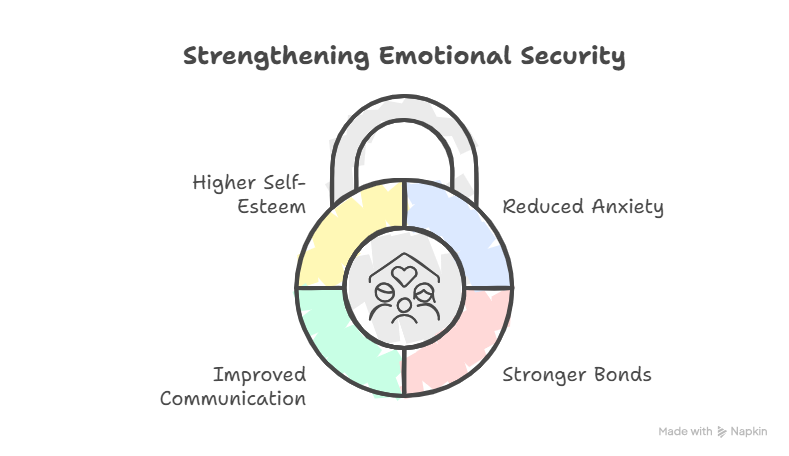Family Values: 7 Powerful Reasons They Shape Your Child’s Future
What makes a child grow into a confident, kind, and responsible adult? The answer often lies in family values—the core beliefs and moral principles that shape our everyday actions. In today’s fast-paced world, raising kids who know right from wrong isn’t easy, but it’s essential. Top parenting articles emphasize that instilling family values early helps children develop self-respect, empathy, and resilience.
Whether you’re a new parent or guiding teens through life’s complexities, understanding the importance of family values can transform your parenting approach and create lasting generational impact.
1. Family Values Build Moral Character
From honesty and respect to kindness and responsibility, family values are the blueprint for moral development. Children learn by observing, and when parents model ethical behavior, kids naturally adopt those standards.
Examples of Core Family Values:
- Honesty: Telling the truth, even when it’s hard
- Responsibility: Owning up to actions and duties
- Compassion: Being kind to others
- Respect: Listening and treating others with dignity
These values don’t just stay at home—they influence how kids behave in school, relationships, and society.
2. They Guide Decision-Making in Challenging Times
When life throws tough choices at kids—peer pressure, digital distractions, academic stress—teaching values to children gives them a strong internal compass. Children who understand their family’s principles are more likely to make thoughtful, ethical decisions even when no one’s watching.
According to the American Psychological Association, value-based upbringing reduces risky behavior and strengthens emotional regulation in teens.
3. They Strengthen Emotional Security
Stable homes grounded in family values offer children emotional safety. When kids know what their family stands for, they feel more secure and connected. This emotional bond creates a nurturing environment where children can express themselves freely and grow into confident adults.

Key Emotional Benefits:
- Reduced anxiety
- Stronger family bonds
- Improved communication
- Higher self-esteem
4. Family Values Promote Respect for Others
Respect is one of the cornerstones of parenting and moral values. When children are taught to value other people’s perspectives, they’re better prepared to build meaningful relationships in school, work, and community life.
Teaching respect helps prevent:
- Bullying
- Discrimination
- Conflict in friendships
5. They Encourage Accountability and Responsibility
Families that prioritize values like accountability raise children who take ownership of their actions. Whether it’s doing homework, apologizing for mistakes, or helping around the house, these lessons translate into adulthood with better time management, work ethics, and trustworthiness.
6. Values Shape Future Goals and Success
Children raised with clear family values are more likely to set goals aligned with purpose and integrity. Whether it’s academic achievement or career growth, values shape how kids define success—not just by outcomes, but by the integrity of the journey.
A value-driven mindset teaches them to:
- Choose the right path, not just the easiest
- Respect others’ success
- Make long-term, meaningful plans
7. They Preserve Cultural and Family Identity
Your family values are part of your legacy. They preserve traditions, honor cultural roots, and strengthen identity. Whether it’s celebrating holidays, volunteering together, or eating meals as a family, these rituals reinforce belonging and continuity.
Real-Life Example: How One Family Made It Work
The Smith family, based in Chicago, implemented weekly “value talks” at dinner. Each week, one family member shares a personal story related to a value like patience or responsibility. Over time, their kids began to use these lessons in school and friendships—proof that small efforts build strong foundations.
Frequently Asked Questions
What are the core family values every parent should teach?
Honesty, kindness, responsibility, respect, and empathy are essential. They form the backbone of a child’s moral and emotional development.
How early should I start teaching family values?
Start as early as possible—toddlers observe and mimic your behavior. Consistency and patience are key at every age.
What’s the best way to reinforce values at home?
Model them yourself, talk about them openly, and use real-life situations as teaching moments. Family rituals, storytelling, and daily habits work well.
Can strong family values reduce behavior problems?
Yes. Studies show that value-based parenting reduces behavioral issues, builds resilience, and improves academic performance.
Conclusion
Family values aren’t just nice to have—they’re essential tools that shape your child’s character, choices, and future. By teaching and living your values every day, you’re giving your kids a priceless foundation that no school textbook can replace.
Want to make a lasting impact on your child’s life? Start with values.
Try this today: Pick one core value and talk about it at dinner. One small conversation could lead to a lifetime of strength.
Any other feedback or suggestions?
There are no reviews yet. Be the first one to write one.







